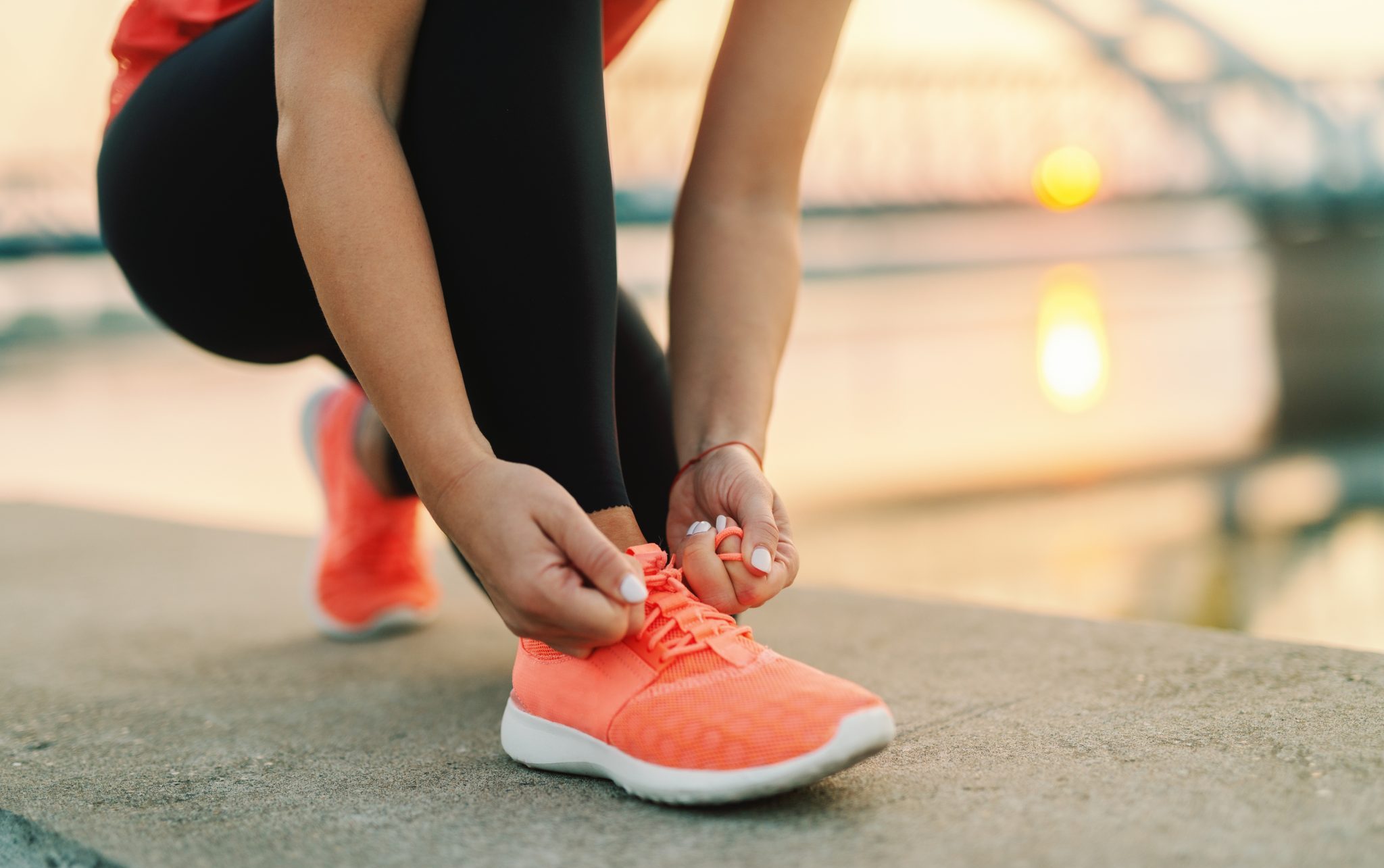What could sound simpler: just right – left, right – left. However, it’s neither easy nor enjoyable if legs feel heavy when running. Now, regardless of your fitness level, you can experience extraordinary fatigue and pain in your lower extremities. Of course, it affects your performance and can discourage you.
A good cardio is exhilarating, sending endorphins through your body while pumping oxygen-rich blood. Yet, not every session goes smoothly and according to your plan. Runners heavy leg syndrome is a very broad issue and even physicians can’t give a definitive answer to why it happens. Yet, there are a few most common causes and solutions that might help you to get the most out of your jog.
First and foremost
Wearing improper shoes is fighting the losing battle – it affects your posture, increases muscle fatigue, can cause injuries and your legs get tired quicker. But, picking the right gear could take a bit of experiment. Some shoes are made to mimic bare foot, some for high arch and trails. What works for me might not work for you. Many running store are even equipped with treadmill to monitor your technique, so the experts can help you find the right pair.
Beginner

If you are ambitious, it’s very easy to jump the gun and move at an above average pace. You feel frustrated and defeated because you had high expectations (thought you were stronger than that). To be on course for productive cardio exercise – don’t push too hard until your body adjusts.
- Go slower. Overtraining syndrome can bring you pain and will put a daunt on your fitness routine. Take notice how fast you are moving and how your body feels. You’ll get stronger and faster – just be patient.
- Schedule rest days. You can even go for a walk instead of jogging to give your muscles more time to recover. Your heart rate would still be higher than if you were sitting on the couch.
Vitamin deficiency
Check your blood for iron levels if you feel like your legs are dead as soon as you start running.
Low iron levels could cause restless legs syndrome – a neurological condition that can also cause heaviness and will hamper your performance on the trail.
Blood circulation
This issue can affect anyone. Poor blood circulation limits the amount of oxygen delivered to the muscles. If your job requires to sit or stand for a long periods of time this might affect you even more. Short walking breaks once an hour (if possible) could stimulate blood flow throughout the day.
Hot Weather

The heat can suck the life out of you – takes a toll on your body because it has to work twice as hard to cool itself. If you live in humid and high temperature conditions, remember to stay hydrated and replenish your electrolytes.
In the heat you naturally sweat more. As you become more and more dehydrated during your stride, the blood gets thicker which makes it harder to pump – therefore your legs feel heavy after running.
Strong body
If you don’t have enough of muscle weight, you might be simply wearing out your body. That’s why you feel like someone filled your shoes with cement. It’s very important to incorporate strength training into your routine. Once or twice a week of strength training would be enough to maintain muscle balance, support joints and prevent injuries.
Muscle soreness
As an athlete, professional or not, you could be facing physical and emotional hurtles as you challenge yourself. Fatigue is inevitable. It’s normal to have tired legs after you are running too fast, too long. There are steps you could take to maintain your cardio as effective as possible.
- Use foam roller. It’s a tremendous tool to enhance the recovery process. The main goal of foam rolling is to stretch and loosen the fascia around the muscle. Its benefit include increasing range of motion, improving blood flow, body temperature. Foam rolling brings oxygenated blood to your muscles tissue and eliminates minor adhesions.
- Get your body ready. When you put your skills to the test and engage in exploration of your physical possibilities, it is easy to forget about the basics. I’m talking about simple warm-ups before you hit the trail. Do gentle stretches, lunges, hip rotations, side-to-side hops.
- Ice bath. If you are brave enough to try this trick, it might save you from post-run pain and heavy feeling in your legs. Multiple clinical trials proved that cold bath can significantly reduce muscle soreness. Just like when you apply ice on minor injury, ice bath or even cold shower can decrease inflammation caused by your cardio workout.
- Eat enough of macronutrients. To speed up the recovery process include healthy fats, carbohydrates and proteins in your daily meals. Calculate : 0.8 G of protein per pound of body weight. Add omega-3 to your diet: tuna, salmon, flax seeds, avocados, walnuts. The fatty acids have an anti-inflammatory effect. To maintain healthy body and great performance stay away from foods that promote inflammation: fried foods, processed meats, soda, refined sugar.
- Elevate your legs. Place your feet on the wall or simply above your heart level for good 10-15 minutes after each cardio exercise. It helps your body to pump the blood and other fluids out of the lower extremities.
With heart and determination, you’ll come a long way. Monitor how you feel and what affects your performance before, during and after your run. If nothing works and your condition worsens – could be the warning sign of more serious conditions. In that case, it’s important to see your doctor. Otherwise, happy trails!






































